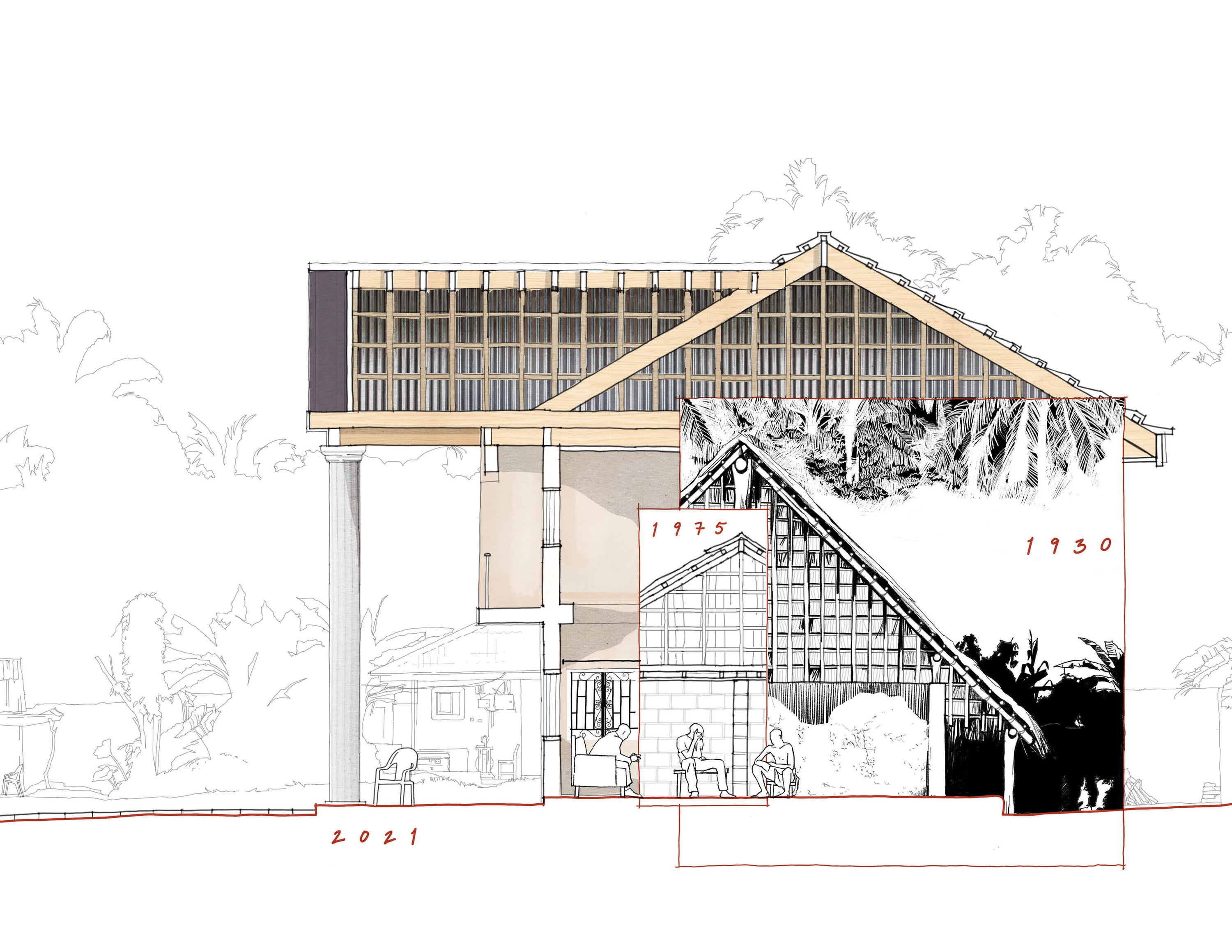Red earth: Shaping the Igbo family compound

Abstract:
Like many other African indigenous peoples, the Igbo of Nigeria established multi-generational homesteads. Many of these family compounds remain in southeastern Nigeria’s rural communities, although not as originally constructed. The transformative effects of British colonialism, post-colonial restructuring, and time have changed their appearance. Despite this, the family compound remains a cornerstone of Igbo life. Culturally it is the ancestral hearth, and increasingly, it is a place of retreat from the fast-paced realities of modern urban life.
When presented with the opportunity to design a family compound in the Igboland region, I began the task of understanding the typology by further investigating my maternal family’s compound, which stands almost a century old. Through an accumulation of archival evidence, on-site research, and oral histories, I begin to illustrate a story of place. This story is about how one site has been adapted for changing family needs and how the compound’s shifting architectural expression reflects societal shifts and evolving expressions of Igbo identity. Within my maternal family compound, I identify several characteristic features of the typology. The built enclosure, the house of the compound head, the central courtyard, and the cultivated landscape help to define the compound's built and unbuilt domain. These features act as a frame through which I may highlight the effects of time on the compound while also representing elements that can be adapted for contemporary compound design.
This thesis examines how a regional typology is adapted to a shifting context. It proposes an alternate methodology for learning from the vernacular by layering all its meaning of language, culture, and architecture to provide a lens through time. This work is also an exercise in preserving and illustrating oral histories, a tradition that defines much of African architectural history and one that sustainable contemporary design requires. It asks how we may contemplate the past in service of the future.
The examining committee is as follows:
Supervisor:
John
McMinn
Committee
member:
Jane
Mah
Hutton
Internal-external
reader:
Tracey
Winton
External:
Joseph
Conteh
The
defence
examination
will
take
place:
Friday,
August
5,
2022,
10:00
a.m.
This
will
be
taking
place
online
via
Teams.
Please
contact the
grad
office for
the
Teams
link.
The
committee
has
been
approved
as
authorized
by
the
Graduate
Studies
Committee.
A
copy
of
the
thesis
is
available
for
perusal
in
ARC
2106A.